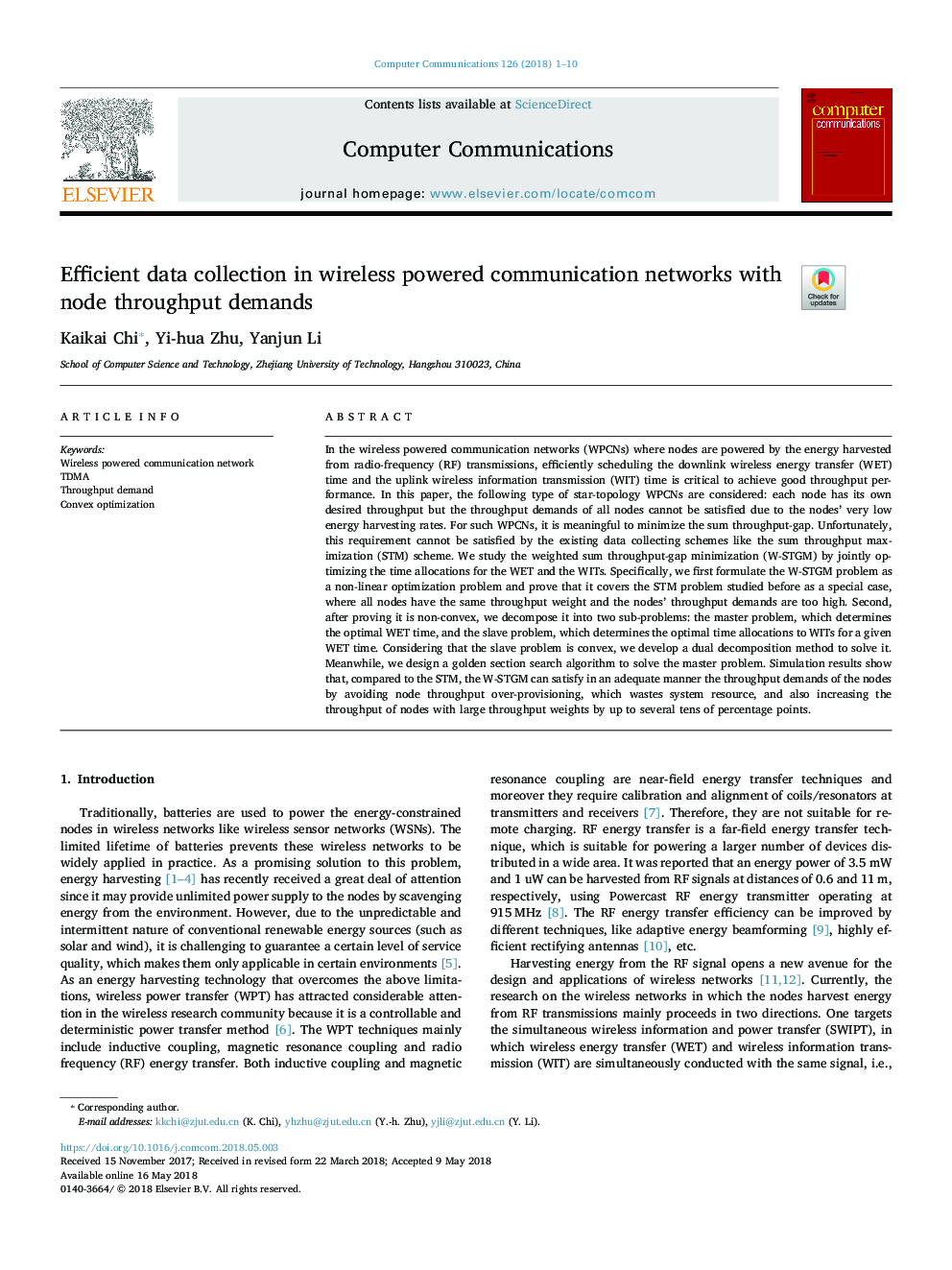| Article ID | Journal | Published Year | Pages | File Type |
|---|---|---|---|---|
| 6879936 | Computer Communications | 2018 | 10 Pages |
Abstract
In the wireless powered communication networks (WPCNs) where nodes are powered by the energy harvested from radio-frequency (RF) transmissions, efficiently scheduling the downlink wireless energy transfer (WET) time and the uplink wireless information transmission (WIT) time is critical to achieve good throughput performance. In this paper, the following type of star-topology WPCNs are considered: each node has its own desired throughput but the throughput demands of all nodes cannot be satisfied due to the nodes' very low energy harvesting rates. For such WPCNs, it is meaningful to minimize the sum throughput-gap. Unfortunately, this requirement cannot be satisfied by the existing data collecting schemes like the sum throughput maximization (STM) scheme. We study the weighted sum throughput-gap minimization (W-STGM) by jointly optimizing the time allocations for the WET and the WITs. Specifically, we first formulate the W-STGM problem as a non-linear optimization problem and prove that it covers the STM problem studied before as a special case, where all nodes have the same throughput weight and the nodes' throughput demands are too high. Second, after proving it is non-convex, we decompose it into two sub-problems: the master problem, which determines the optimal WET time, and the slave problem, which determines the optimal time allocations to WITs for a given WET time. Considering that the slave problem is convex, we develop a dual decomposition method to solve it. Meanwhile, we design a golden section search algorithm to solve the master problem. Simulation results show that, compared to the STM, the W-STGM can satisfy in an adequate manner the throughput demands of the nodes by avoiding node throughput over-provisioning, which wastes system resource, and also increasing the throughput of nodes with large throughput weights by up to several tens of percentage points.
Keywords
Related Topics
Physical Sciences and Engineering
Computer Science
Computer Networks and Communications
Authors
Kaikai Chi, Yi-hua Zhu, Yanjun Li,
